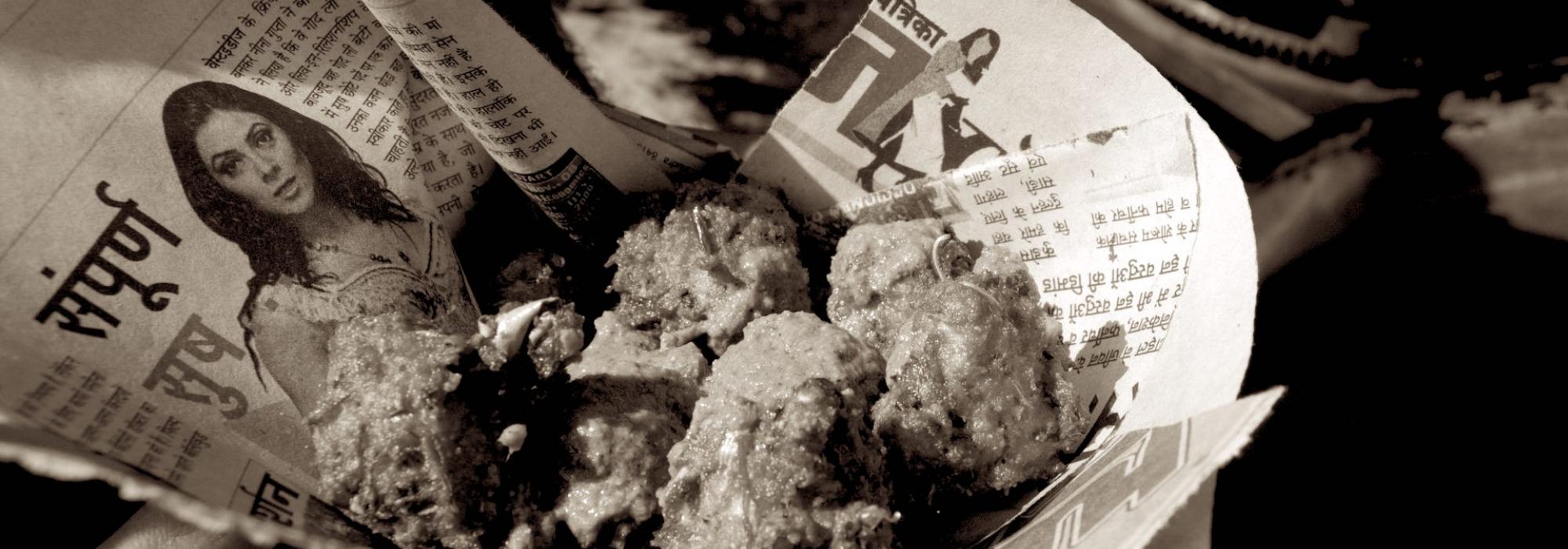At times, DVG’s political critiques would become the subject of analysis even in his home. At the end of 1971, Smt Sharadamma brought some sweets to DVG and said: “Don’t scold Indira Gandhi from now on.” It was the occasion of India’s victory in the Bangladesh war.
It was Smt Sharadamma’s responsibility to take care of DVG’s health. Once DVG asked, “For some reason, the medicine today is not like normal. It’s bitter.” Smt Sharadamma explained: “I had indicated to the doctor that hyacinth beans were in excessive supply lately.”
The folks who took care of DVG like a flower for several decades were his younger brother D.V. Rama Rao and his wife, Smt Sharadamma, their children Shyamala and Chandramouli, and Rama Rao’s daughter-in-law Lalithamma. It is not an exaggeration to claim that thanks to their loving care, DVG was able to preserve his zest for life till the very end.
After DVG returned home from taking treatment at the St. Martha’s Hospital for his paralysis, the doctors laid down the stricture that visitors should not disturb him thereby causing fatigue. In spite of this, several folks would visit him. DVG’s family tried to reduce this flood as much as possible. Still, some folks would drop in citing random pretexts. An acquaintance, Acharya who was an advocate visited one day and said, “DVG appeared in my wife’s dream yesterday. That’s why she sent me to see him.” To which, Smt Sharadamma said: “Sri DVG doesn’t have a wife. Else, she would have taken her to task saying, ‘why do you visit the dreams of random people?’”
****
DVG would frequently laugh at the vagaries of his own personality. He displayed double enthusiasm in describing his own follies.
Once an Ayurveda Pandit had prescribed some massage to DVG. Accordingly, he had to grind a mixture of tamarind and an assortment of leaves and herbs, apply it on his head and stand in tender sunlight for an hour.
While he was in this state, a friend visited him and invited DVG to his home that evening. DVG declined.
Friend: “Why? Is there some programme?”
DVG: “I need to deliver a lecture in Central College on Morley’s On Compromise.”
The friend regarded DVG from head to toe and exclaimed: “O! So all this preparation is for that! Very appropriate.”
***
On one occasion, DVG felt that the regular walking stick he used was inadequate. And so, he began to use a seven-foot-long log. Both his family members and our friends’ circle launched on a betting match to see how long that would last in his hands. A few days later, DVG said, “This is indeed venerable. However, it is not convenient,” and returned to his old walking stick.
The kind of experiments DVG regularly subjected himself to were the constant subjects for mirth.
***
As soon as I met him one evening, he announced: “It appears that from now onwards, I need to cultivate discipline in the matters of eating snacks.”
I asked him what had transpired. He said:
“Some guy has declared, ‘I have been cheated by own sense organs,’ right? One must not forget that even the mind is included in the list of sense of organs. Just as our bodily organs give us trouble, so does our mind play games with us.
“The moment our stomach aches, we take Agarol or liquid paraffin. It does its job. That is the matter related to the stomach. But does the tongue remain tranquil? It makes us think, ‘After taking medicine constantly, everything seems tasteless.’ The moment this feeling arises, self-pity envelops me. Then I send for Subbanna or Chandra and ask them to fetch me some unhealthy stuff. The taste of that gutter side Pakora can never be present in homemade delicacies.
“But then, we can surely learn from one such unhealthy experience? Ummhmmm! No way! A new argument, a new reasoning each day – a new method to rationalize. ‘This morning’s broth was not all that satisfactory’ – in this manner, I coax myself and fall into unhealthiness again. Its outcome is the same – axe to the bottom!
“The same story was repeated just last Saturday. First, the stomach ache. So I took Agarol. No stomach pain at night. But no sleep either…”
Our friend, the humorist Dasharathi Dikshit had dedicated one of his books to DVG, the Pakora-lover.”
***
Humourous Nature
Because DVG’s nature was endowed with the quality of detached isolation about himself, it was possible for him to observe scores of incidents and record them. We can see illustrations of this in his Jnapakachitrashale essays.
The working committee of the Kannada Sahitya Parishad was faced with passing a resolution mourning the death of a certain person. But then, would such a decision be passed so easily when the luminaries of the world of literature were all assembled in one place? It was said that this simple task consumed several hours. The dispute revolved around the most appropriate choice of words to be used. “On account of his death.” “Upon leaving his mortal body.” “On account of him passing in the clutches of Time.” “Because he attained the Fifth State.” Or was it okay to simply write, “On him coming under the sway of the Divine?” Or, was it appropriate to say, “Upon his attaining Heaven?” But then, if one writes, “Upon his attaining Heaven,” would it be proper to then add that the Parishad “expresses its sorrow?”
Such episodes were innumerable: those that DVG wrote or didn’t write or narrated orally.
DVG, K.S. Krishna Iyer and others once met to discuss famine relief works. The snacks and other culinary arrangements made on this occasion became the subject of great praise for days on end.
The renowned orator Mudavidu Krishna Rao was famous for driving the audience crazy with his splendid eloquence. Once in a speech in Bangalore, “What kind of dazzling poets were born in our Kannada land! What about Pampa! What about Ranna! What about Ponna! What about Janna!...” Even as he blazed forth along these lines, DVG who was seated next to Krishna Rao poked him. When Krishna Rao truned, DVG asked him: “What Ponna? What Janna?”
Krishna Rao: “How should I know about all that man? It’s you guys who say all that!”
Once when N. Narasimha Murthy set out for the toilet with a mug of water in his hand, he was suddenly confronted by a deep philosophical question. He said, “But hasn’t Leibnitz said this? What about Spinoza?”
DVG: “Should this matter be resolved right now or do we have time till you finish your job in the toilet?”
***
A famous journalist was known for concocting stories about his wife’s illness or her impending delivery or whatever and taking cash rewards from Diwan Mirza Ismail. But Mirza was generous. He would say, “My heart goes out to him, you know,”and give him money.
DVG who knew this drama background of the said journalist would humourously ask Mirza: “Sir, is your heart in place these days?”
***
DVG used a substantial number of vogue words. Even these created humour on many occasions.
DVG used the word “occasion” very often. If one of us visited him at odd hours, he would say, “What’s the occasion?”
The vogue word that Sri S. Venkatachalapati—who served as an assistant for several decades since the Gokhale Institute began—used was “non-occasion.”
Another episode. The work of applying distemper to the walls and ceiling of the inner room of the Gokhale Institute was in progress. While painting the ceiling, the painter inadvertently took the support of a book rack placed in the middle of the room. The consequence: three or four racks filled to the brim with books fell to the ground in a heap together with the books. In this manner, the weeks-long effort we had all put in to categorize the books came to naught. By divine grace, the painter didn’t suffer any injury.
We decided to relate the incident to DVG immediately. It was past eight in the night. Venkatachalapati, Subbanarasimhayya and me went to DVG’s house. This was the conversation that transpired:
DVG: “What’s the occasion?”
Venkata: “A non-occasion has occurred…”
To be continued















































